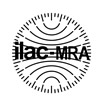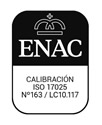According to FAO (Food and Agriculture Organization of the United Nations), the world population in 2050 will be 9500 million people, so the global amount of food production must increase a 70% from current levels.
Climate change is other problem that society must face nowadays, because it has a strong negative impact on food production, with a reduction in farming areas and water availability.
However, there is great resistance to the introduction of new technologies in agriculture, specially by older farmers and small farms, as in many cases it is difficult to pay for the investments needed.
The optimization in farming and livestock production leads to higher productivity and efficiency, and it is thus the only way to achieve this target. In this task, digital technology will have an essential role.
The concepts “Big data farming” and “Precision agriculture” refer, on the one hand, to the use of a large amount of data in decision making, and, on the other hand, to the monitoring of the performance variability of crops by means of measure devices feeding databases. Both concepts are essential to understand the nature of smart farming.
It has been estimated that, by the end of this decade, more than 75 million IoT devices for precision agriculture systems will be installed. Therefore, the amount of data available will increase exponentially and the knowledge about the environment, by means of tools for data analysis, will enable to reach conclusions for the improvement in productivity and efficiency.
According to Beechman Research’s report, almost a 70% of the world’s drinking water is used in agriculture. Until now, water in developed countries was a cheap and available resource, but, as we are seeing in the last years, and related to climate change, there are more and more areas with water restrictions, so watering optimization is a most important factor for sustainable agriculture.
Watering optimization reduces not only water consumption, but also the energy needed to take this limited resource to the fields (pumping, transport, etc.), and the costs in fertilizers, as a part of the fertilizers is dragged by surplus water and not really applied to the plants.
It has been estimated that a good watering system can lead to an 8% reduction in water consumption and a 2% increase in productivity. In the next few years, this will rise significantly.
ENVIRA has developed the Nanoenvi Smart Agro sytem for precision agriculture. This platform enables to monitor several environmental parameters such as the volume of water in soil, environmental temperature and humidity, leaf moisture and growth of stems and trunks, among others, at a very low cost.
All data are sent to the cloud in real time by means of several communication technologies. Then tools for data analysis can reach conclusions to improve watering and fertilization strategies and even to fight crop diseases, and thus make the farm more profitable while we take care of our planet.










